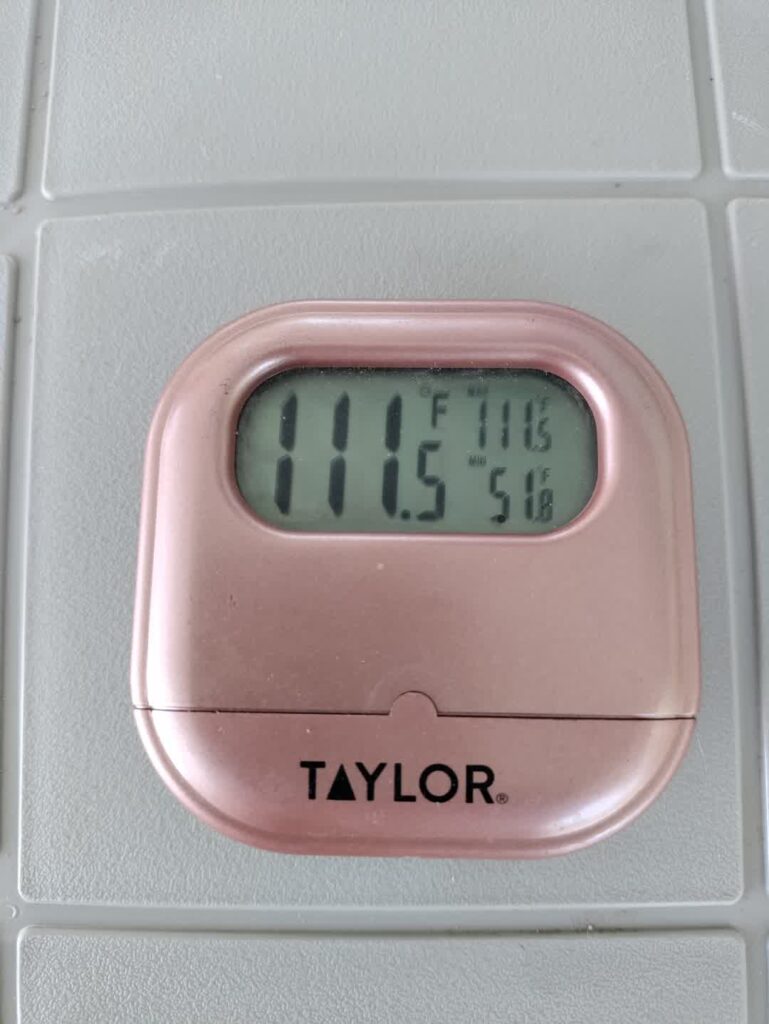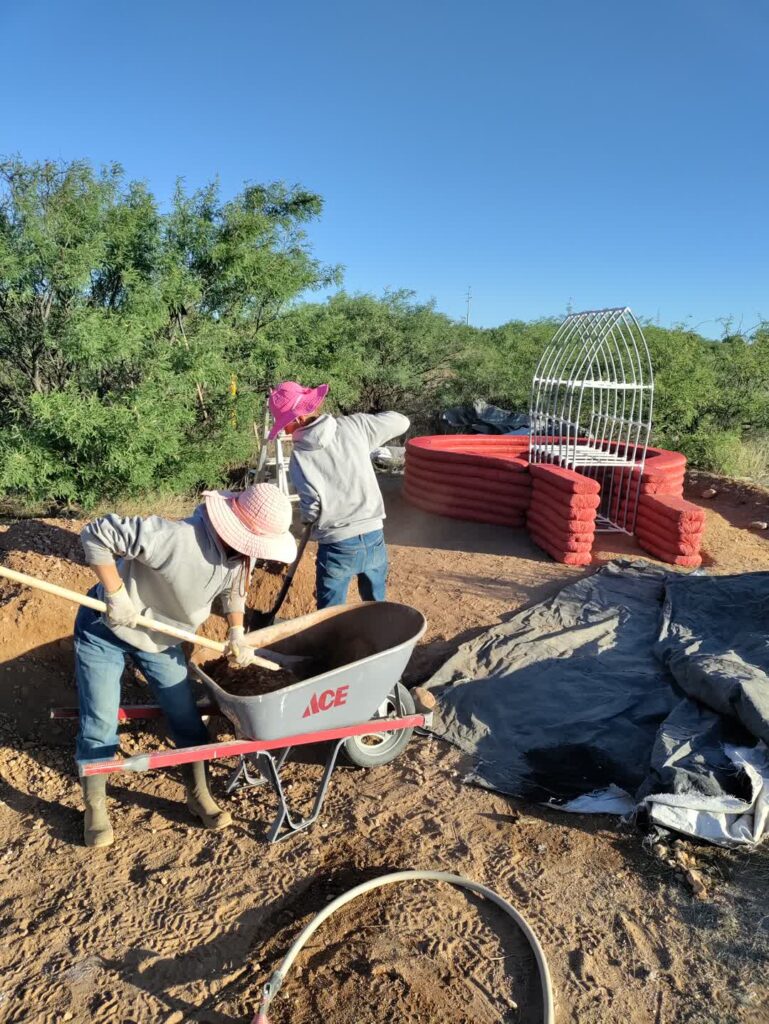Mankind has had it very difficult throughout most of history and still does in much of the world. There’s definitely something to be said for working smarter, not harder. But is there such a thing as going too far, making life too easy, and getting too soft? Think of robot vacuums and mowers, elevators, electronic servants for even the simplest tasks (eg. brushing teeth, basic math, unlocking/opening car doors and windows), guardrails for everything (padded on playgrounds), snacks between meals to avoid ever feeling hunger, living vicariously through television and movies, letting AI do some of our thinking, and the list could go on and on with innumerable modern conveniences.

What happens if you always take the path of least resistance, the easy way out, and avoid anything difficult or challenging? As a matter of fact, this habitual way of thinking and behavior leads to a variety of degenerative effects. Of course, ongoing or chronic high stress (eg. physical, emotional, mental, spiritual) is also degenerative – it’s a system disruptor that can lead to many health problems.
What Is Hormetic Stress?
Hormetic stress is low-level stress that actually has beneficial effects – it’s regenerative and exhilarating! It makes you stronger, more resilient, and is even anti-aging. It develops your mind and body to better handle higher levels of stress, making it more resistant to degenerative forces.

I’m not aware of good evidence pointing to hormetic stress providing complete treatment of any specific ailment, but research shows that it helps optimize overall health, which of course can help your body heal. Evidence suggests benefits such as becoming more resilient to all kinds of stress, heightened detoxification functions, more resistance to disease, elevated performance, slower aging, more confidence, and better overall quality of life.
Examples of Self-Inflicted Hormetic Stress
Man is God’s most intelligent creation and He gave us the ability to reason and make complex plans. Rather than acting on instinct, we can choose how to live our lives. With an understanding of degenerative vs regenerative stress, we can be intentional about our thinking and behavior. The media, advertisements, and people we surround ourselves with all influence us, but we can even choose those.
We can choose to do some things manually instead of using a gadget, choose to do some things the hard way because it’s the hard way, choose to do things that are mentally or physically challenging because it makes us stronger. There are many ways to incorporate this kind of thinking and behavior into our daily lives, and there are ways to intentionally take it up a notch for some intensely-stimulating hormetic stress that’s extraordinarily good for us. Following are a number of examples.
Because most Americans spend the vast majority of time in climate controlled buildings and vehicles, their bodies cringe at the idea of experiencing the elements or extreme temperatures like our pioneering forefathers did. But braving some extremes to create hormetic stress can be as easy as taking a polar plunge (or a cold shower – even just a quickie at the end of your hot shower can be invigorating!), frequenting hot springs, using a sauna, or just hanging out at Sabbatical Ranch. 🤠

Chronic overeating has led to an obesity crises with it’s associated diseases. But it’s not difficult to reverse. (Did you know plates and cups have gotten bigger and bigger over the last century?) Undereating, or eating until right before you’re full, is practiced in cultures who also happen to enjoy the healthiest, longest lives on the planet. It’s alright to be hungry before your next meal. Intermittent fasting is another approach with demonstrated benefits. Simply don’t eat between dinner and breakfast, which can easily be 12+ hours. Extending it up to 16-18 hours can increase the benefits (you can still eat three meals per day three to four hours apart). Beyond that it gets extreme and may be used therapeutically, but not for long-term heath.

Many modern conveniences are designed to eliminate working your muscles. But if you don’t use your muscles, you lose them. As you age it’s easier to lose muscle and harder to build it. Hormetic stress to the rescue! A job that requires a variety of frequent physical labor can be very beneficial (or again, just visit Sabbatical Ranch). At least three times per week (daily is better with a day of rest each week) get the intensity level high enough to make a real difference. The way you know when you’ve done yourself good is if you experience at least one of the following (Variety between all of these – different ones on different days – is really best. Variety is good for your brain and your body.):
- Lungs strained with heavy breathing
- Heart pounding and blood pumping
- Break out in a sweat!
- Muscles almost can’t handle any more
Before smartphones we all used our brains in a lot more different ways. Before paper and pencils our ancestors used their brains in a lot more different ways. Can you imagine what it was like? I read Clement of Rome. He said he was a disciple of Peter, the apostle of Christ. He recounted extensive word-for-word details about what he was taught, way beyond what I imagine any moderners would remember from what they learned in a Bible study. How can we challenge our mind with hormetic stress? Did you know that doing math in your head rather than relying on a calculator helps keep your mind sharp? Did you know that mental and physical skill building helps prevent cognitive decline? Can you imagine the difference in brain development of children growing up interacting with screens on devices rather than interacting with all manner of physical objects in the natural world?
Christians for the last two thousand years have experienced all kinds of spiritual stressors and Scripture tells us exactly how to deal with them: “Consider it all joy, my brethren, when you encounter various trials, knowing that the testing of your faith produces endurance. And let endurance have its perfect result, so that you may be perfect and complete, lacking in nothing.” (James 1:2-4) “Beloved, do not be surprised at the fiery ordeal among you, which comes upon you for your testing, as though some strange thing were happening to you; but to the degree that you share the sufferings of Christ, keep on rejoicing, so that also at the revelation of His glory you may rejoice with exultation.” (1 Peter 4:12-13) Jesus said: “Love your enemies, do good to those who hate you.” (Luke 6:27)

If it doesn’t kill you, it makes you stronger!
That old saying certainly has some truth in it – within reason (ie. with hormetic stress). Here are a couple of principles to keep in mind if you try some of these things.
Keep it at a 3 or below: If you rate pain or intensity on a scale of 1-10, keep hormetic stress at a 3 or below. You don’t want to push too hard and hurt yourself because that will just set you back. If you’re doing this with others, keep in mind that a 3 for thee is not necessarily the same as a 3 for me. Know your limits.
Think through each of these with whatever you try: Speed can be increased and decreased, repetitions can be increased and decreased, intensity can be increased and decreased, frequency can be increased and decreased, difficulty can be increased and decreased. Frequency for example: If you afflict yourself every hour, you’ll have a diminishing rate of return (ie. you’ll get so accustomed to it that it will have less and less of a benefit).
All things in moderation, including moderation!
In conclusion, it’s not healthy to eliminate all stressors and make life too easy. It’s best to keep stress at tolerable levels that are beneficial for body, soul, and spirit. And it’s thrilling to make the most of your potential and actually live life fully to the glory of God!
Consider dipping your toe in the water of hormetic stress, or at least looking further into it. Also, here are some interesting corollaries to consider:
- We benefit from plants that have experienced hormetic stress (eg. from the weather or microbes). They produce phytochemicals to help them deal with it. When we eat them, we’re better able to deal with those same stressors.
- Frequent childhood exposure to the outdoors in rural environments leads to a healthier microbiome than in children raised primarily indoors or urban environments. A healthy microbiome is the foundation of a healthy immune system that is more capable of fighting off disease and illness-causing pathogens.
- Hormetic stress is similar to the idea that serves as the basis for both vaccines and homeopathy, but I’ll let others argue over the merits of those controversial topics. 😅



